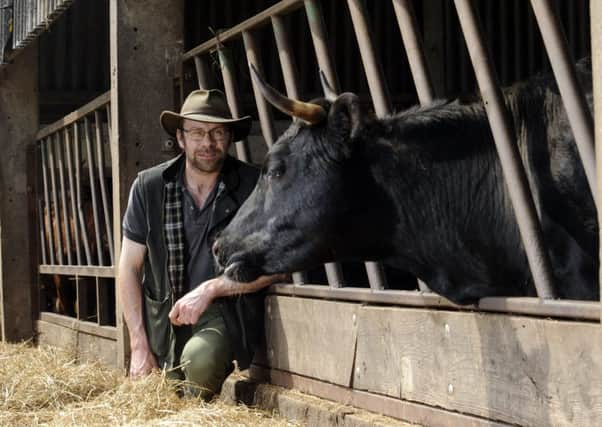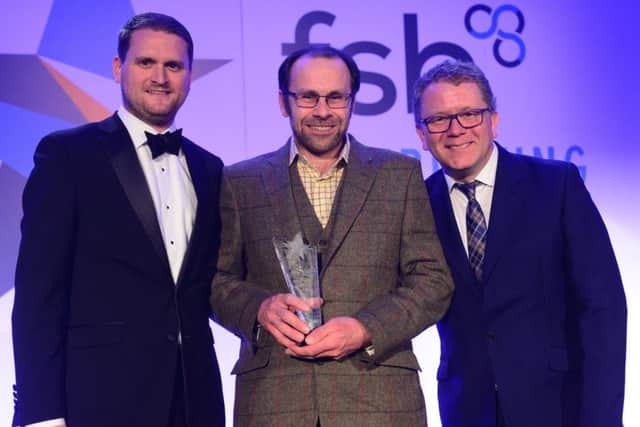Ethical farm in Ellerton hailed as an example to others


Farming brothers Robert and Paul Rose started out in 1996 with a small herd of Dexter cattle on rented land. Six years later they bought 37 acres and turned the farm into a full-time business which now spans more than 600 acres in the Lower Derwent Valley - an area that encompasses 100 acres of a national nature reserve and to which the pair have given the collective identity of The Yorkshire Ings.
Their approach at Rosewood Farm in Ellerton defies commercial convention and led to them being named Ethical and Green Business of the Year in the Federation of Small Business’ annual awards last week.
Advertisement
Hide AdAdvertisement
Hide AdTheirs was the first farm in the UK to commercially operate a cattle grazing system that involves using temporary fences which are moved regularly to create a high intensity, low frequency grazing system.


The brothers say this benefits the animals, the land and wildlife by ensuring the movement of their cattle mimics the way herds of wild grazing herbivores move across the landscape.
Their ‘green’ credentials are bolstered further by their reliance on recycled materials in construction on the farm, the use of renewable energy and of small farming machinery because of its fuel efficiency and ease of repair.
Their approach has attracted the conservation Red-listed bird species, the whimbrel, to the farm and the Lower Derwent Valley National Nature Reserve is the only place in England to retain a natural population of breeding corncrakes. Extra habitats have been created too for breeding snipe, barn owls and grey partridge.
Advertisement
Hide AdAdvertisement
Hide AdRobert Rose said: “Relying upon people cooking from scratch at home, keeping small cattle, grazing wetlands and conserving wildlife are all things that go against us in terms of business and don’t make economic farming sense so we couldn’t have done this without our loyal customers who regularly buy and eat our beef.”
Mike Cherry, the FSB’s national chairman, said: “Rosewood Farm is a great example of a small business that was founded on green principles from the outset. These principles permeate through its practice.”